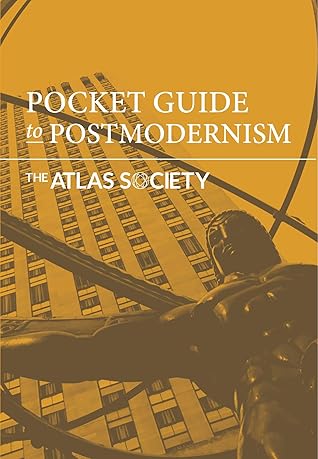Kindle Notes & Highlights
Postmodernism rallied the following positions: metaphysical anti-realism, epistemological subjectivity, and values sourced in feelings. The results for culture and society followed: without any foundation in truth, what basis was there for morality, values, and social order?
While the debates over metaphysics and epistemology might seem “academic” and neither of concern nor of consequence to the day-to-day lives of most people, it cannot be stressed enough that the conclusions of philosophical ideas operate quite extensively in the lives of people; they just tend to be hidden and subtle.
The basis of this was that reason causes disbelief in faith and religion, leads to disobedience, and finally results in anarchy.
the collectivist Right’s plan was progressive rather than conservative, pushing forward toward a kind of society with governments strong enough to subordinate its citizens so that they may be sacrificed to goals of national “progress.”
20th century socialism, while remaining for the people,
The only way for the collectivist Left to proceed was to take a more radical approach. First, socialist intellectuals distanced themselves from the eyesores: National Socialism in Germany under Hitler was not socialism, and the Union of Soviet Socialist Republics under Stalin was not socialism. Neither were Castro’s Cuba, Pol Pot’s Cambodia, nor Mao’s China. Socialism had never really been practiced correctly anywhere in the world. “On paper,” it was argued, socialism works; it is nice, friendly, and based on kindergarten ethics—all we ask of people is to share or be sent to the naughty chair.
...more
Wealth had a cost, it was argued, and the environment was one of them. Industry, once a symbol of working-class socialism, was now a sin against the planet. The essential point was that economic production and environmental health were incompatible, and for one to gain, the other had to lose. This is where concepts like “carbon footprint” emerged, which implies that each of us, by our very existence, puts a cost on the planet’s well-being.
Rorty is actually the least extreme of the postmodernists; he acknowledges that language can be used in resolving social conflict, although he insists, as many postmodernists have adopted from the collectivist Right, that we may only be able to socially interact empathically with our own ethnicity, and “we must, in practice, privilege our own group.”
the postmodern strategy evolved to share affinities with religion. Both had been exhausted when battling in the arena of reason, and so the arena itself needed to be abolished. Once we remove reason and reality, a foundation in which to find the superior argument, nothing is left but opinion, and here postmodernism has an equal footing and can advance its agenda by any means necessary.
recall that Thrasymachus famously argued in Plato’s Republic that justice is the interest of the stronger. Postmodernists today, perhaps due to the influence of two millennia of Christianity and two centuries of socialist theory, simply argue the opposite, that justice is the interest of the weaker.
If all truth is relative, why is postmodernism the right one? ● If all cultures are equal and respectable, why is Western culture uniquely bad? ● If values are subjective, why are sexism and racism bad? ● If technology and wealth are bad, why is it unfair if some have more than others? ● If tolerance is good and dominance is bad, why should we adopt postmodern political correctness? Wouldn’t that be a new intolerance and a new dominance? We can see a pattern here: promote subjectivism and relativism in theory but promote dogmatic absolutism in practice.
As well captured in the writings of Nietzsche in Daybreak, When some men fail to accomplish what they desire to do they explain angrily, “May the whole world perish!” This repulsive emotion is the pinnacle of envy, whose implication is “If I cannot have something, no one can have anything, no one is to be anything!
What can be likened to this characterization is the historical failures of socialism. Weakened, they have lashed out, and having failed at that, now have the urge to destroy. If we cannot have socialism, we will have nothing; nothing will reign. Perhaps this sounds radical, but one can sample postmodernists and find precisely this ressentiment.
Nietzsche wrote on this precise strategy in the Genealogy of Morals: …when would they [the men of ressentiment] achieve the ultimate, subtlest, sublimest triumph of revenge? Undoubtedly if they succeeded in poisoning the consciences of the fortunate with their own misery, with all misery,


